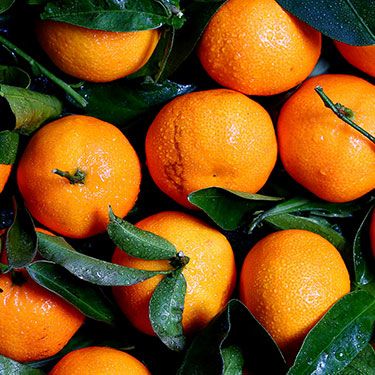

Our Nutrition and our Eyes
We all know carrots are good for our eyes (have you ever seen a rabbit with glasses?). But did you know that so are cherries, broccoli, tuna and oranges? Carrots and other orange-coloured fruits and vegetables promote eye health and protect vision. Beta-carotene, a type of vitamin A that gives these foods their orange-ness, helps the retina and other parts of the eye to function smoothly.
But eating your way to good eyesight isn't only about beta-carotene. Though their connection to vision isn't as well known, several other vitamins and minerals are essential for healthy eyes. Make these other foods a staple of your diet to keep your peepers in tip-top shape.
Research suggests that antioxidants and other important nutrients may reduce your risk of cataracts and macular degeneration. Specific antioxidants can have additional benefits as well. For example, vitamin A protects against blindness, and vitamin C may play a role in preventing or alleviating glaucoma. Omega-3 essential fatty acids appear to help the eye in a variety of ways, from alleviating symptoms of dry eye syndrome to guarding against macular damage.
All a bit too much to digest? At Outlook Eye Centre want to make it easy for you, so here is a quick and easy reference guide to what is good for your eye health…
Vitamin E: Seeds, fruit and seed oils.
Vitamin E is important for the retina (the layer of tissue inside the eye that collects light and enables you to see).
Vitamin C: Fresh fruit and vegetables, juices.
Long-term consumption of vitamin C as part of a healthy diet has been shown to contribute to cataract prevention.
Zinc: Seafood, meat, nuts and beans.
In the eye, high doses of zinc in combination with other antioxidants, have been found to significantly reduce the risk of developing advanced macular degeneration. While not a cure or a means of repairing damage from macular degeneration, zinc may work to slow its progression.
Lutein and zeaxanthin: Corn spinach, cabbage, oranges, celery, dark green leafy vegetables such as kale, spinach and silver beet, and red peppers.
These are particularly important nutrients which play crucial roles in maintaining health of the eyes, helping to filter out harmful blue light and quench hazardous free radicals in the macular.
Selenium: Bread, fish and Brazil nuts.
This trace mineral is important for the proper function of the retina.
Coenzyme (Q10): Fish, meat, grains and peanuts.
Found to stimulate the immune system and may be beneficial for people with diabetes.
We aren’t saying you have to eat only these and nothing else (where does chocolate fit into all this?), but by adopting a few simple practices and a combination of some of these foods as part of your normal diet, it will certainly help reduce the risk of eye disease. After all, prevention is better than the cure.
 07 4635 8844
07 4635 8844